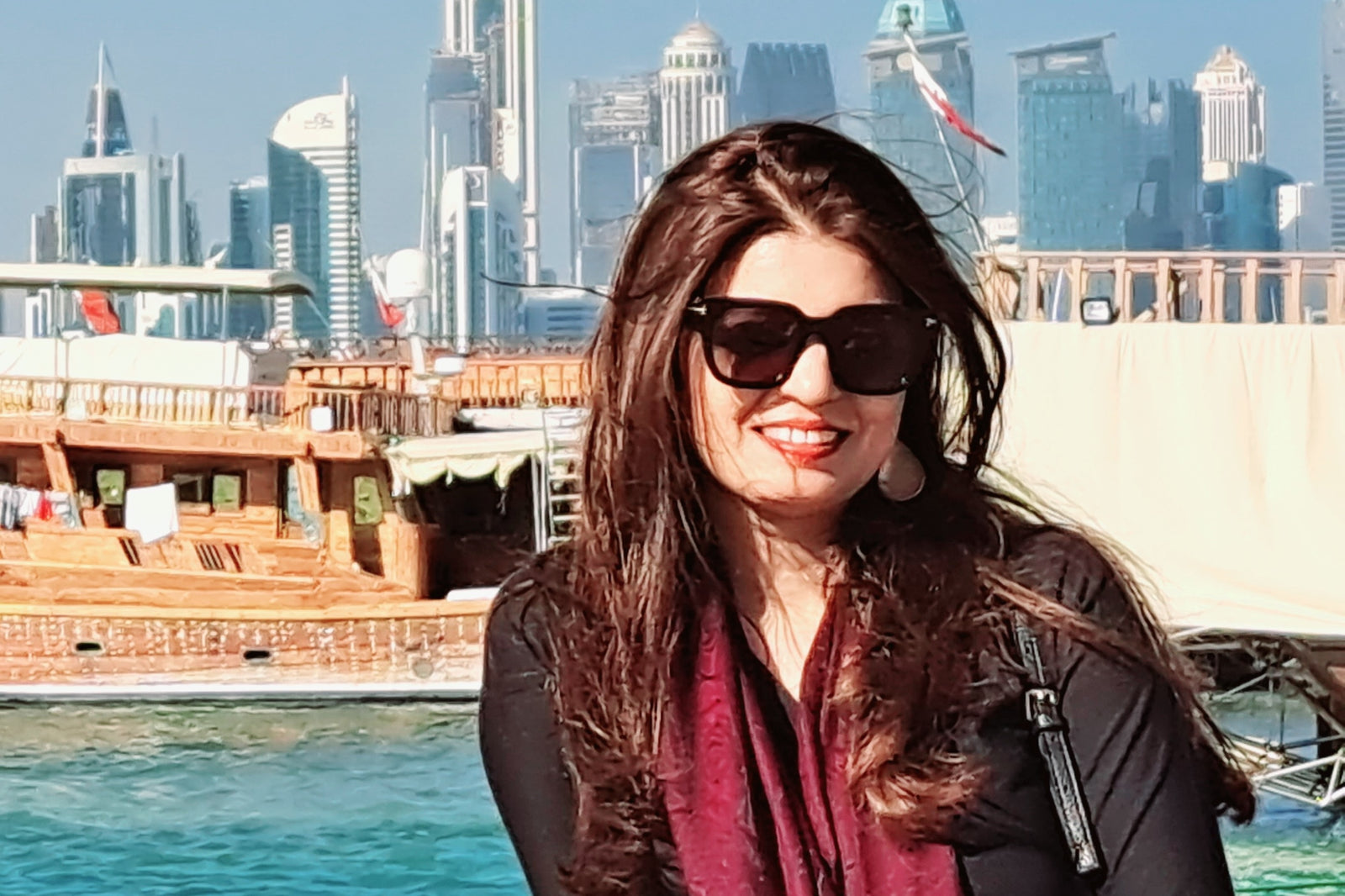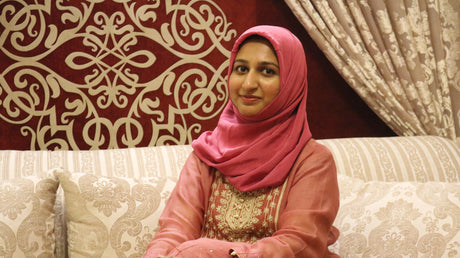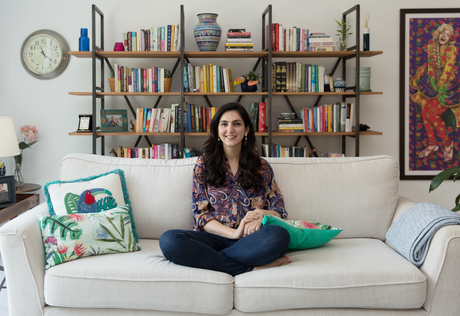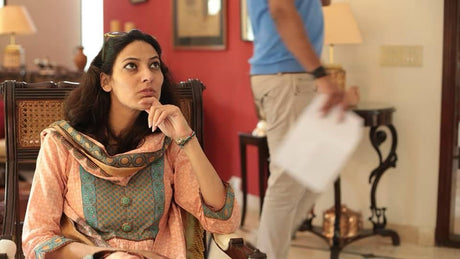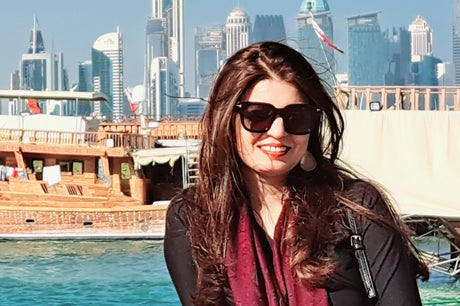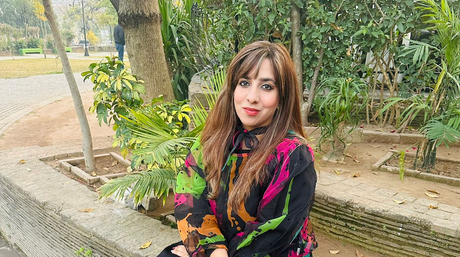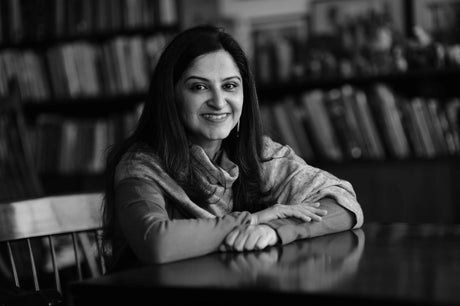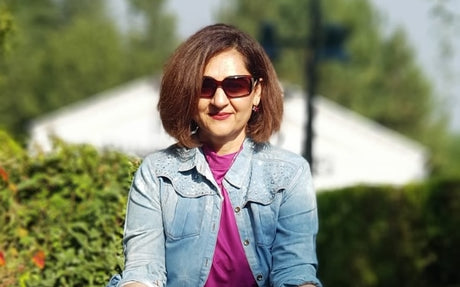By: Nyle Omar Mian
Embarking on a journey that spans continents, cultures, and epochs, Asma stands as a testament to the rich tapestry of life's experiences. As the eldest among four siblings, her roots are deeply entrenched in the familial bonds that connect her two brothers and two sisters. Since 2001, Lahore has been more than a city of residence for Asma; it has been the cradle where her career in Public Relations and Communications blossomed, transforming the vibrant city into a cherished home. Born in Riyadh and relocating to Islamabad at the tender age of five, her childhood was a mosaic of cultures, further enriched by a move to Kuala Lumpur at the age of ten. In this diverse setting, she absorbed the true essence of diversity and acceptance, hallmarks of a truly multicultural nation.
Navigating through an era marked by the significant transition from analog to digital, Asma has observed firsthand the metamorphosis of societal norms and structures. It's within this constant flux that she discovered her life's philosophy: a commitment to continuous evolution. Embracing a journey of perpetual learning and unlearning, Asma has learned to critically assess and remain authentic to herself. Her life narrative is one of evolving from her successes and learning from her missteps, always pressing forward. Her story unfolds as a narrative of persistence, adaptability, and relentless pursuit of personal and professional growth.

1) Asma, could you tell us a little about yourself? Personal details, your family, your background, and bits from your bio, would really help us in introducing you effectively in the piece -- whatever you're comfortable with.
Let me begin with the basics. I am the eldest of four siblings, with two brothers and two sisters. I have lived in Lahore since 2001 and started my career in Public Relations and Communications, making this city feel like home. I was born in Riyadh and moved to Islamabad when I was five. At the age of 10, we relocated to Kuala Lumpur, experiencing firsthand the true meaning of diversity and acceptance in a multicultural nation. I grew up in an era or environment where we didn’t experience the polarization we see today.
I witnessed the transition from analogue to digital and how it has changed the norms and
structure of society that we see today. I believe in a state of constant evolution, to keep learning and unlearning, to assess ourselves critically, and to be honest with ourselves. This is what life is all about—learning from our successes and mistakes and keeping moving forward.
2) Can you share some key insights into how the field of communications has evolved during your fifteen-year career, especially considering the shift from traditional to digital mediums?
Where do I start? From reading a set of newspapers every day to finding the right journalist to pitch stories for our clients to simply posting an announcement on social media handles, communications has come a long way. When I started in 2008 at Lotus, digital media did not exist, and our core focus was traditional mediums, i.e., newspapers, magazines, TV, and radio for placement in a very limited space. There was a need to pitch stories in a manner that was interesting for the target medium and the audience they catered to. It required being very aware of current affairs and trends and building a pitch around it for our clients.
Today, the digital space plays a crucial role, offering an open canvas for individuals, companies, or brands to share their stories directly with audiences, eliminating the need for third-party media channels. However, this liberation brings a double-edged sword; while it grants the freedom to express, it also empowers the audience to make or break a campaign. In this era of fleeting attention spans and overwhelming content, standing out poses a significant challenge. Therefore, thorough research, audience understanding, and strategic collaboration are imperative.
What has not changed is the credibility certain publications and channels bring to a brand, elevating your brand equity and standing in the sector you operate in. It will remain - a credible media outlet vying for you will always hold value.
As we move forward, the role of AI in communications is noteworthy, yet the human touch, emotions, and critical thinking will always be indispensable.
3) In your roles as a communications consultant for USAID and as the Risk Communications and Community Engagement Consultant for COVID-19 with UNICEF, can you highlight a challenging scenario you faced and how you effectively addressed it?
As a consultant with UNICEF during the COVID-19 pandemic, the most challenging aspect was increasing vaccination numbers in the digital age when misinformation about the COVID-19 vaccine was rampant. We faced immense pushback from pregnant women who refused to get vaccinated, posing a potentially life-threatening risk if they contracted COVID in the 3rd trimester, leading to several deaths. The challenge here was that many gynaecologists advised their patients against vaccination during pregnancy. To break the taboo against vaccination during pregnancy. We collaborated with leading gynaecologists and crafted a strategy leveraging their credibility to promote vaccine safety. This collaborative effort, encompassing digital media and Television resulted in a significant uptick in vaccination numbers and saving lives. The success of the campaign was a career-high for me.
I was inducted as the Communications Expert on USAID’s Investment Promotion Activity (IPA) to the Board of Investment of Pakistan in 2023. The global macro-economic conditions and the national economic and political instability have been challenging for everyone working towards improving the investment climate of Pakistan. Faced with such challenges, the key is to keep moving forward, no matter how small the steps may seem.
4) Your contributions were acknowledged by the Government of Pakistan during your tenure with UNICEF. Can you elaborate on the impact of your work and any significant lessons you learned?
This was during the COVID-19 pandemic, and I am very proud of how well the pandemic was handled by the government of Pakistan. It was acknowledged worldwide for its data-driven approach to identifying potential risks and mitigating them. Under the leadership of Dr. Faisal Sultan, we achieved one of the lowest death rates in the world, considering our population. The availability of the vaccine, oxygen, and the handling of lockdowns across Pakistan are achievements that every citizen should be proud of. Yes, lives were lost, but many were saved that could have been lost. I was part of the strategic communication team placed at the Ministry of National Health Services Regulation & Coordination in Islamabad and was recognized for our efforts in effectively developing and implementing communication strategies that aligned with the goals of the government of Pakistan.
 5) As the Head of Marketing and Resource Mobilization at Fatima Memorial System, what strategies did you employ to successfully balance promoting the organization and ensuring financial support?
5) As the Head of Marketing and Resource Mobilization at Fatima Memorial System, what strategies did you employ to successfully balance promoting the organization and ensuring financial support?
Achieving a balance involves having a clear end goal from the outset. What do I want to achieve for the organization? What should be the perception of the Fatima Memorial System in the next 5 years? In this case, it was to narrate the role it plays in healthcare for people of all socio-economic backgrounds as a 500-plus bed tertiary care hospital. Second, creating the next generation of healthcare practitioners through medical, dental, allied, and nursing colleges.
The strategy revolved around staying true to the organizational identity and finding supporters who could serve as partners and collaborators. This, in turn, helped us to move forward and serve Pakistan. The three-pronged approach included promoting healthcare, health education, and finding partners, utilizing both traditional and digital mediums to connect with diverse target audiences across Pakistan.
Success is driven by a clear understanding of the end goal; the strategy follows.
6) Given your interest in global politics and understanding of social issues, particularly maternal and child health, education, and financial literacy, how do you believe effective communication can contribute to addressing these challenges for the socio-economic development of Pakistan?
Having spent most of my life in Pakistan, I recognize that a large segment of our population, particularly women, suffers from the consequences of the lack of education, financial empowerment, and societal norms that hold them back. However, I have concluded that many issues arise from the lack of understanding of the fundamentals of life that can empower women with the knowledge to make informed decisions.
This includes knowing their basic rights, understanding the possibilities available to them with access to financial services, and realizing how simple things like handwashing and boiling water can save the lives of their children and families.
Effective communication strategies can play a vital role in the capacity building of women in the fundamentals of essential life skills, empowering them to navigate the challenges of daily life and actively participate in their communities. Women are nurturers of their families and children, playing a key role in the progress of the family unit and in turn our nation.
7) What advice would you like to give to young women hoping to make a name for themselves in PR & Communications?
Like any other profession, PR and communications require commitment and dedication and only get better with practice. Leave your biases at the door, understand your clients or organization’s goal, imbibe it, and live it. Remind yourself that you play the role of a bridge between your company and the audience, whosoever they may be. The story is there, all the chapters are written, and your job is to tell the story well.
Do your research, utilise data, and be consistent with the implementation of the strategies you develop—some might work, and some may fail. In PR and communications, the end goal is to build narratives that build credibility, resonate with audiences, and are beneficial in the long run for both the brand and the end consumer.
Despite the challenges, PR and communications offer opportunities to carve our niche in the ever-evolving space.
8) Asma, you're a very cool, calm and collected person: how can one be emotionally intelligent in the workplace when you-know-what hits the fan?
It comes with time, experience, and an exercise of self-control. Once we learn that we are unique individuals, and our differences make us who we are, we learn to understand the emotions of the team that we work with. I like to remind myself that each one of us makes mistakes, and it is okay. We learn from them, fret over them for a few days, and move on. Similarly, in the workplace, mistakes will happen, and crises can be never-ending, especially in our field, but it is all okay—there will always be tomorrow. How we manage today is all that matters."
Emotional intelligence enables us to navigate challenges, be resilient in the face of adversity and promote a positive work culture.

